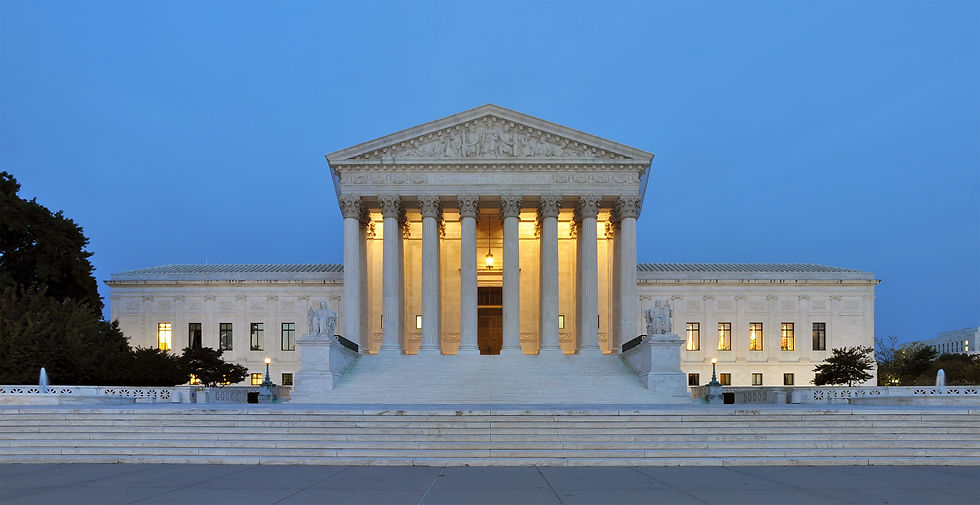Budget Battle: Page Cortez Holds Key Role in Road Spending vs. Debt Payment Debate
- Bayou Weekly

- May 23, 2023
- 3 min read
The Louisiana State Legislature is heading towards a critical moment in its ongoing budget discussions, and all eyes are on Senate President Page Cortez. A furniture store owner and former football coach from Lafayette, Cortez holds the key to determining whether the state will allocate a record-breaking amount of funds to address road repairs, university building renovations, and coastal erosion.
With the legislative session set to adjourn on June 8, the question remains whether fiscal conservatives can prevent Cortez and his allies from securing the two-thirds majority vote required in the House to surpass the spending limit. These conservatives advocate for allocating less money to infrastructure projects and instead using the surplus to pay off long-term retirement debt.
Cortez, a pragmatic Republican, has rallied support from both Republicans and Democrats in the Senate, determined to raise the expenditure limit and channel the unexpected surplus into investments with long-term benefits. Governor John Bel Edwards, a Democrat, shares Cortez's perspective and supports using the surplus for infrastructure development.
Commissioner of Administration Jay Dardenne has also joined the effort, highlighting crucial projects that would only receive funding if the spending cap is lifted. Among these projects are the construction of multi-billion-dollar bridges in Lake Charles and Baton Rouge. Various associations and coalitions, such as the Louisiana Municipal Association, the Police Jury Association of Louisiana, and the Rural Hospital Coalition, are actively urging House members to support lifting the expenditure limit, emphasizing the dire need for funds in their respective districts.
Cortez and House Speaker Clay Schexnayder face pressure to reach an agreement on the spending plan before the session concludes. Failure to pass the budget during the regular session would require a three-fourths vote in each chamber in a special session, which poses significant challenges due to the leverage it grants to lawmakers from different ideological backgrounds.
The House, led by Speaker Schexnayder, supports a budget plan that diverges from Cortez's vision. Their plan aims to prioritize paying down debt owed on retirement plans for teachers and state employees, redirecting the surplus to reduce interest payments. They argue that local school boards could use the savings to raise teacher salaries.
The House's stance has garnered support from various business groups, including the Associated Builders and Contractors, Americans for Prosperity, and the Louisiana Association of Business and Industry. Their proposal also entails allocating sufficient funds to the state's rainy day fund, triggering a reduction in corporate franchise tax and a slight decrease in personal income tax.
Schexnayder, however, faces a delicate situation as he runs for secretary of state and aims to avoid being labeled a big spender aligned with Governor Edwards. Nonetheless, his choices will be closely scrutinized, with analysts speculating whether he will side with fiscal conservatives against Cortez or quietly support raising the spending cap.
Despite the traditional divisions between the House and the Senate over budgetary matters, Cortez appears to hold an advantage this year due to his experience and the less-experienced members in the House. His reputation as a conservative has not deterred him from advocating for spending all available funds, including $200 million for extending I-49 south of Lafayette in his district when the state had surplus funds last year.
Cortez emphasizes the need to invest in infrastructure now to avoid higher costs in the future. He argues that the surplus should be utilized to address roads, bridges, and buildings that would deteriorate further and become more expensive to repair in the coming years.
As the session nears its end, the Senate is expected to release its proposed budget soon, highlighting projects that would go unfunded if the spending limit remains unchanged. While Cortez and his allies remain determined to secure funds for critical infrastructure needs, the final decision rests with the House, where at least 70 votes are needed to raise the cap. Representative Raymond Crews has already gathered enough signatures to potentially block such a move.
With the resolution of this budget debate expected in the final days of the session, the political landscape in Louisiana hangs in the balance. Cortez, once again drawing on his legislative skills, aims to secure much-needed funding for infrastructure, while fiscal conservatives and business groups advocate for debt payment and tax reductions. The outcome will shape the state's future for years to come.









Comments